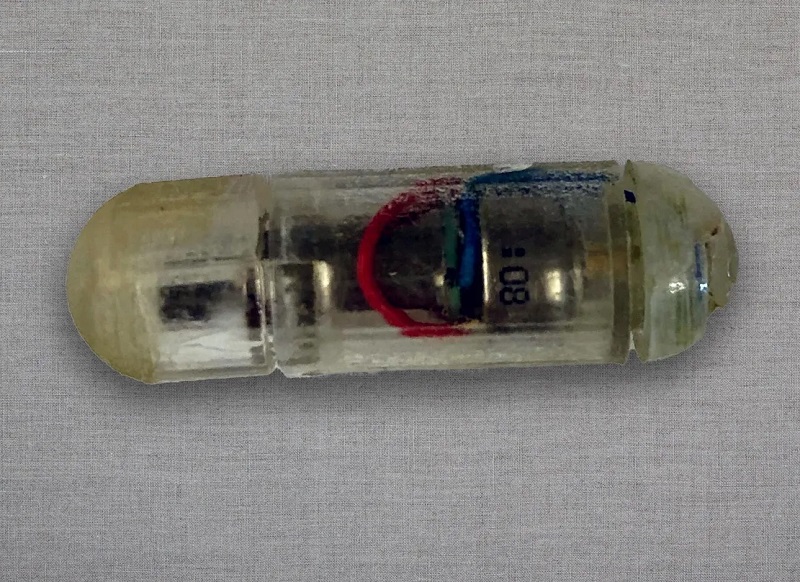In animal studies the pills passed through the digestive system within 4 or 5 days
Researchers in the US have created a tiny pill-sized device that induces the feeling of satiety in the human body and reduces food intake.
The device is swallowed before eating and when it reaches the stomach, it vibrates on contact with the gastric fluid, stimulating the vagal nerve receptors and causing the feeling of satiety. The pill, called a vibrating ingestible bioelectronic stimulator (VIBE), was tested on pigs and found to reduce food intake by 40%. Researchers at Brigham and Women’s Hospital and MIT are proposing the pill as a minimally invasive way to treat obesity.
When the researchers administered the pill to pigs 20 minutes before eating, they found that the device not only stimulated the release of hormones that signal satiety, but also reduced food intake by about 40 percent. “We estimate that the Vibes pill should be taken on a relatively empty stomach 20 to 30 minutes before anticipated meals to induce the desired feeling of satiety early in the meal,” the team wrote in their study, adding that when produced at scale, the cost of the pills is expected to range from a few cents to a dollar.
The pill offers a non-invasive, temporary treatment for weight loss. “This approach offers an alternative and potentially synergistic approach to other currently available treatments,” said Giovanni Traverso, an associate professor at the Massachusetts Institute of Technology (MIT) and an author of the study.
The current version of the pill is designed to vibrate for about 30 minutes after it arrives in the stomach, but the researchers plan to explore adapting it to stay in the stomach longer, where it could be switched on and off. wirelessly, depending on the individual’s needs. In the animal studies, the pills passed through the digestive tract within four or five days.
An alternative approach
This type of pill could offer an alternative to current approaches to treating obesity, the researchers say. Non-medical interventions such as diet and exercise do not always work, and many of the existing medical interventions are quite invasive. These include gastric bypass surgery, as well as gastric balloons, which are no longer widely used in the United States due to safety concerns.
Medications such as GLP-1 receptor agonists, such as Ozempic and Wegovy, can also help with weight loss, but most of them are quite expensive. According to the researchers of the present study, the new pill could be manufactured at a low cost so that it would be accessible to a larger number of people. “For many populations, some of the most effective obesity treatments are very expensive. At scale, our device could be manufactured quite cost-effectively,” they said.
The researchers now plan to explore ways to scale up production of the pills, which could allow clinical trials in humans. The company behind Wegovy, Novo Nordisk, is one of the funders of research into the breakthrough pill. The team’s work was published in the scientific journal Science Advances.




